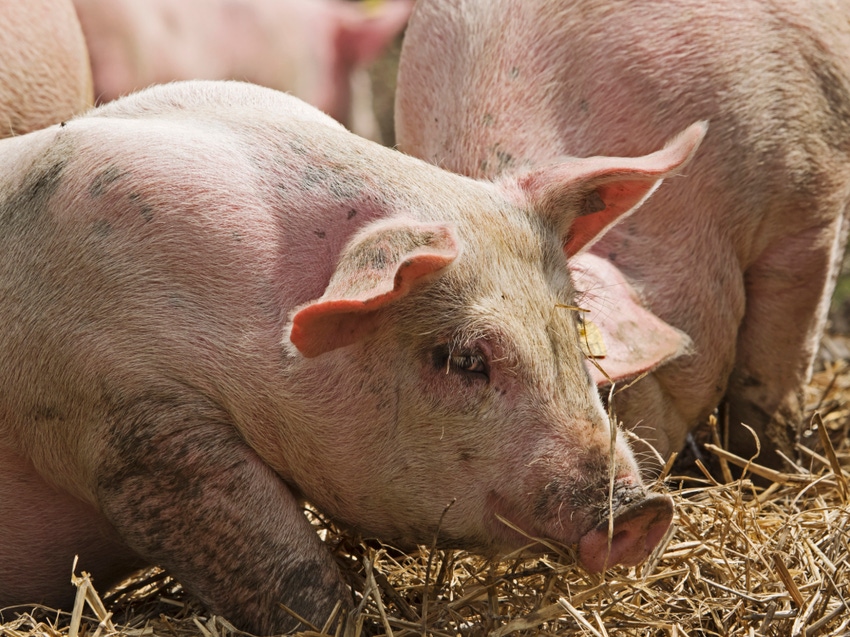DNA tool to detect African swine fever in pigs, pork
Plum Island Animal Disease Center assessed how well portable genetic test detects ASF virus in samples from infected pigs and raw pork products.

The U.S. Department of Homeland Security (DHS) announced March 24 that its Science & Technology Directorate (S&T) and MatMaCorp have completed a successful evaluation of a field-deployable genetic test to detect African swine fever (ASF) virus in infected pigs and pork products.
As ASF continues to rapidly spread in other parts of the world, scientists at S&T’s Plum Island Animal Disease Center (PIADC) sought to evaluate available technologies for rapid detection, DHS said.
ASF is a high-threat, transboundary animal disease that is often fatal to pigs but poses no threat to human health. The U.S. is the largest global exporter of pork, with more than 115 million hogs valued at $24 billion going to market yearly.
“An introduction of ASF into the United States — and a failure to plan for or manage its spread through active surveillance and field testing — could eliminate the domestic pork export market,” PIADC science director Dr. John Neilan said. “There is currently no vaccine or field-deployable detection device to protect livestock in the event of an ASF outbreak. We are focused on testing and evaluating countermeasures to prevent, respond to and recover from a possible large-scale ASF outbreak.”
Through a cooperative research and development agreement with MatMaCorp of Lincoln, Neb., the team assessed how well the company’s portable nucleic acid analysis system could detect the ASF virus in the field, DHS said.
PIADC and MatMaCorp collected clinical tissue samples from infected laboratory pigs — including oral fluid, blood, meat tissue, bone marrow and spleen — and, using MatMaCorp’s tools, were able to detect the virus in all samples.
In a separate announcement, MatMaCorp pointed to the successful evaluation of the genetic test for also detecting ASF virus in uncooked pork products, noting that raw pork products are the most common way ASF is spread.
The ability to detect the virus in such samples can help processing plants monitor for viral contamination before exporting products. Similarly, the test could be used to check imported pork products for the virus before they reach the market, the company said.
“Technologies like these allow testing to move out of the lab and onto the front lines, enhancing our nation’s preparedness and responsive capacities against the ASF virus,” said PIADC microbiologist Dr. Michael Puckette, who led the work. “These field technologies, as sensitive as laboratory-based molecular tests, can rapidly extract and detect the virus DNA in clinical experimental samples. The test has the potential to be used to monitor raw pork product imports as well as domestically produced samples during pork processing.”
ASF could be introduced into the U.S. from imported pork products and animal feed or by international travelers who illegally bring in contaminated pork products from infected countries, DHS said. Over the past five years, the ASF virus has spread to more than 50 countries, including China, Vietnam, Indonesia and the Philippines.
ASF has yet to be detected in the U.S., but The Swine Disease Global Surveillance Project estimates that if it was, it could cause up to $10 billion in economic damages within a year, MatMaCorp said in its announcement.
“An outbreak of African swine fever is a very real threat that could devastate the domestic pork export market, and as developers of diagnostic technologies for science and agriculture, we found it of the utmost importance to make available a genetic test that could potentially help protect our pork supply,” MatMaCorp chief executive officer Phil Kozera said.
MatMaCorp said its customizable platform is designed to quickly analyze genetic information, including single nucleotide polymorphisms, from any biological sample at any location. The platform includes a simple DNA/RNA isolation kit and a custom assay that is run on a small, portable device.
About the Author(s)
You May Also Like



